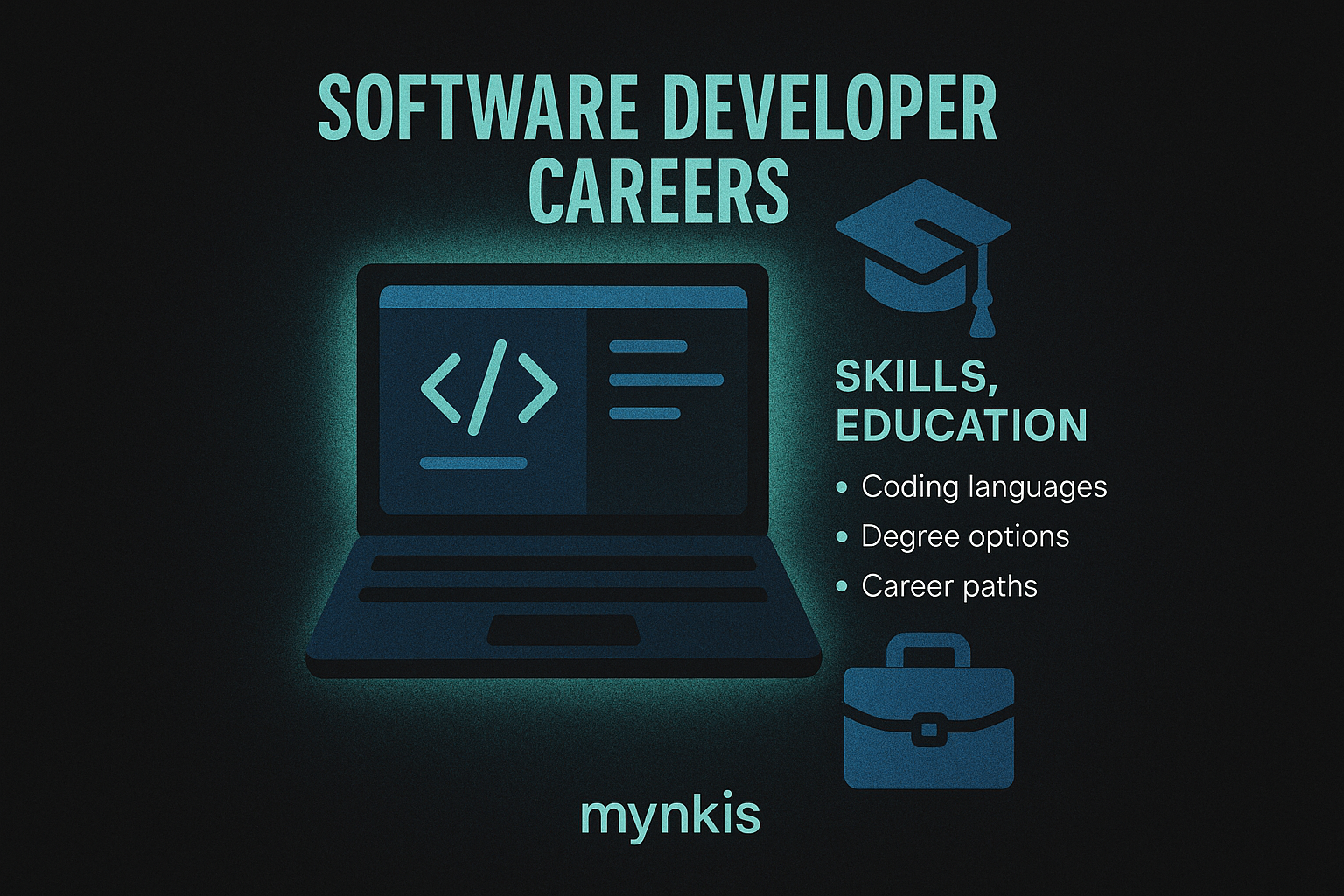Schedule a Demo
The world of software development is as vast as it is intriguing, offering multiple pathways that can suit various interests and expertise levels. From front-end development focused on user interface design to back-end roles centered on server and database management, the spectrum is broad. I've worked closely with educational institutions, and I can tell you that understanding these paths is crucial for schools and universities aiming to equip their students with sought-after skills. A keen focus on these career avenues ensures that students are primed for real-world success.
What sets these paths apart, you ask? A front-end developer delves into the realm of aesthetic and user-friendly interfaces. Think of those sleek, interactive websites that enhance user engagement; that's their craft. Conversely, back-end developers operate behind the scenes, ensuring that applications run smoothly and securely. Databases, server management, and integration points occupy their daily routines.
Now, let’s touch upon the increasingly popular role of the full-stack developer. These professionals are masters of the entire development environment. From crafting HTML and CSS on the front end to managing database systems and writing server-side scripts on the back end, full-stack developers often find themselves indispensable in project teams.
In my interactions with various educational bodies, there's an overwhelming interest in shaping students into versatile full-stack developers. The edge a full-stack developer brings to a project – the ability to oversee the project lifecycle from start to finish – is highly valued. Such versatility also signals to employers that a graduate is equipped to adapt and thrive in ever-changing tech environments.
No discussion about career paths would be complete without highlighting the skills needed to excel. Programming languages like Python, Java, and JavaScript are essential. But beyond coding, I've seen firsthand that the demand for soft skills like communication, teamwork, and problem-solving cannot be overstated. In my consultancy work, I often advise academic leaders to include more real-world project-based learning to hone these crucial attributes.
When we're talking about custom learning management systems (LMS) for educational institutions, the ability to interface new software effectively means mastering tools like Git for version control, understanding development operations, and being familiar with agile methodologies. For students, exposure to these practical tools and frameworks ensures they're ready to collaborate effectively in software development teams.
As developers gain experience, they often see their careers branch out in exciting directions. Progression to a software architect or a technical team lead is common and rewarding. These roles involve not just coding, but designing software systems and leading teams.
In developing optimized websites that attract search traffic for universities, a lead developer's ability to orchestrate SEO-friendly web architecture is key. They guide junior developers, ensuring the overall strategy integrates with coding practices for maximum impact. Architectural and managerial skills mesh seamlessly to create products that resonate with educational mission statements and marketing goals.
For any professional in the technology field, and certainly for those in educational sectors handling custom software development, continuous learning is not just an advantage; it's a necessity. The tech landscape evolves rapidly, with new frameworks, tools, and best practices emerging constantly.
Through my experiences, I’ve advised educators to embed ongoing education opportunities into their programs. Workshops, hackathons, and certifications, for example, provide students with chances to learn about the latest in machine learning, artificial intelligence, and cybersecurity - skills highly in demand in both educational and industry settings.
Now let's consider the larger impact of grooming skilled developers in educational settings. When universities and schools produce graduates adept in custom software development and optimized for search traffic, these young professionals not only enhance their alma mater's systems but also influence the broader tech industry.
Students armed with real-world software development experience can contribute to better enterprise web solutions for educational tools, improving learning experiences, and pushing the boundaries of what's possible in educational technology. Their contribution to innovation can inspire future students and shape the pedagogical tools used across the globe.
The role of software developers in shaping our future is undeniable. As educational programs increasingly incorporate technology, the demand for qualified developers in specialized fields such as education tech grows. Schools and universities crafting their own custom LMS and deploying search-friendly websites recognize the central role developers play.
To prepare for this future, it’s paramount for educational bodies to align their courses with the industry’s needs. Hands-on projects simulate industry conditions, while internships help students apply their skills in real enterprise settings. When students understand and can illustrate how to integrate SEO principles into custom software, they're ready to influence market trends in education tech.
Developing a nuanced understanding of software developer career paths also equips educators with a framework to guide students in a direction that resonates with their passions and professional aspirations. This tailored approach not only enhances individual student success but elevates the reputation of educational institutions as trendsetters in tech education.
